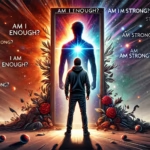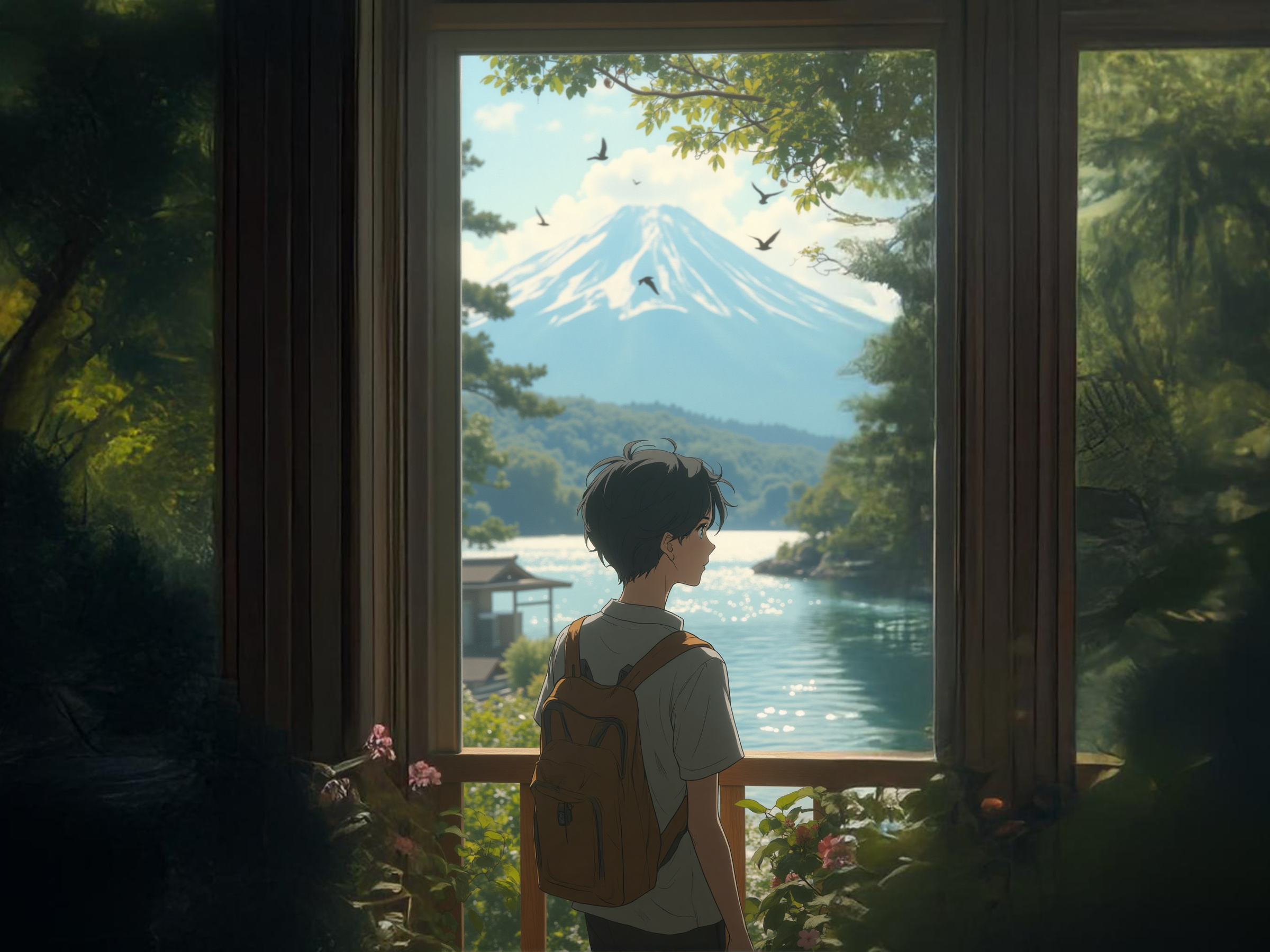There’s something happening in the world right now, something we can all feel but struggle to put into words. It’s that tight feeling in your chest when you open your news app. It’s the way your mind races at three in the morning about things you can’t control. It’s the reason you’ve probably typed “why do I feel anxious” into Google more times than you’d like to admit. You’re not alone. In fact, anxiety has become the most searched feeling in 2025, and that tells us something important about the world we’re living in.
I remember talking to my friend Sarah last month. She works a normal job, has a loving family, and by all accounts, her life looks pretty good from the outside. But she told me something that stuck with me. She said, “I feel like I’m constantly waiting for the other shoe to drop.” That sentence perfectly captures what so many of us are experiencing right now. We’re living in a state of anticipation, always bracing for the next big thing to go wrong, and it’s exhausting.
The truth is, anxiety isn’t new. Humans have always worried about things. Our ancestors worried about finding food, avoiding predators, and surviving harsh winters. But what’s happening now feels different. The anxiety of 2025 isn’t about immediate physical danger. It’s something more complicated, more persistent, and harder to escape from.
Think about how your day starts. For many of us, the first thing we do is reach for our phones. Before our eyes are fully open, we’re scrolling through messages, notifications, and news alerts. Within minutes, we’ve absorbed information about global conflicts, economic troubles, climate disasters, political drama, and whatever personal crises are unfolding in our social circles. Our brains weren’t designed to handle this much information, especially not before we’ve even had our morning coffee. Yet this is our new normal, and our minds are struggling to keep up.
The world moves faster now than it ever has before. Technology was supposed to make our lives easier, and in many ways it has. But it’s also created this strange situation where we’re expected to be available all the time, to respond immediately, to keep up with everything happening everywhere all at once. Your boss can message you at nine at night. Your family group chat is always active. Your social media feeds never stop updating. There’s no natural endpoint to the day anymore, no moment where you can truly clock out and let your mind rest.
What makes anxiety so tricky is that it’s not always about something specific. Sometimes you can point to a reason and say, “I’m anxious because I have a big presentation tomorrow” or “I’m worried about paying my bills.” But often, especially in 2025, anxiety just sits there in the background like a constant hum you can’t quite ignore. It’s a general sense of unease, a feeling that something isn’t quite right even when you can’t put your finger on what exactly is wrong.
The pandemic changed something in us that we’re still trying to understand. Even though life has moved on and we’re no longer in lockdowns, the psychological impact lingers. We learned that our normal lives could be upended overnight. We experienced loss and uncertainty on a massive scale. We discovered that the systems we thought were stable could actually be quite fragile. That knowledge doesn’t just disappear. It sits in the back of our minds, coloring how we see the world and making us more aware of all the ways things could go wrong.
Money worries are playing a huge role too. The cost of living has jumped dramatically while wages haven’t kept pace for most people. Young adults are looking at housing prices and wondering if they’ll ever be able to afford a home. Parents are stressed about childcare costs and education expenses. Retirees are watching their savings and worrying if it will be enough. Even people who are doing okay financially feel the pressure because economic stability feels more uncertain than it used to. When you’re worried about making ends meet, that anxiety touches every other part of your life.
Social media deserves special mention here because it’s both a symptom and a cause of our collective anxiety. These platforms are designed to capture our attention and keep us scrolling, and they do that by showing us content that triggers emotional responses. We end up in this weird space where we’re constantly comparing our real lives to everyone else’s highlight reels. We see people appearing to have it all together, achieving amazing things, living perfect lives, and we wonder why we’re struggling. What we forget is that everyone else is probably feeling just as anxious as we are, they’re just not posting about it.
The environment is another source of anxiety that’s always there in the background. We’re watching temperatures rise, seeing more extreme weather events, hearing dire predictions about the future of the planet. For younger generations especially, there’s this overwhelming sense of inheriting a world in crisis. It’s hard not to feel anxious when you’re constantly hearing that time is running out to fix massive global problems, and you feel powerless to do anything about it.
Work culture has evolved in ways that fuel anxiety too. The boundaries between work and personal life have blurred to the point where they barely exist for many people. Remote work gave us flexibility but also meant we never really leave the office. The hustle culture that dominates social media tells us we should always be grinding, always be productive, always be working toward the next goal. Taking time to rest feels like falling behind. This constant pressure to do more and be more is a recipe for anxiety.
What’s interesting about anxiety becoming the most googled feeling is what it tells us about how we’re trying to cope. People are searching for answers, looking for explanations, trying to understand what they’re experiencing. That’s actually a positive sign. It means we’re becoming more aware of our mental health and less willing to just suffer in silence. A generation ago, many people wouldn’t have had the language to describe what they were feeling or the courage to seek help. Now we’re at least asking the questions, even if we don’t always like the answers we find.
The problem with googling anxiety is that it can become part of the anxiety cycle itself. You search for symptoms and convince yourself you have all of them. You read about worst case scenarios and start to worry those will happen to you. You fall down rabbit holes of information that leave you more confused and stressed than when you started. The internet is amazing for connecting us to resources and information, but it can also amplify our worries in ways that aren’t helpful.
Another thing driving anxiety in 2025 is the sheer number of choices we face every day. This might sound like a weird thing to complain about, but research shows that too many options can actually make us more anxious and less satisfied. We have endless streaming options but spend thirty minutes trying to decide what to watch. We have thousands of products to choose from but feel paralyzed trying to pick the right one. Every decision, even small ones, becomes this thing we have to research and optimize. It’s mentally exhausting.
Loneliness is also connected to anxiety in ways we’re only beginning to understand. Despite being more connected digitally than ever before, many people feel isolated and alone. Real, deep human connections take time and effort to build and maintain, and in our busy, distracted lives, those connections often get neglected. When you’re anxious, you need people who understand and support you, but anxiety itself can make it harder to reach out and connect with others. It’s a cruel cycle.
For parents, there’s a whole additional layer of anxiety about raising kids in this world. You worry about their safety, their education, their mental health, their future opportunities. You worry about screen time and social media and peer pressure and whether you’re making the right choices for them. You see other parents who seem to have it all figured out and wonder what you’re doing wrong. Parenting has always been hard, but it feels like the stakes are higher now and the rulebook keeps changing.
The political climate globally isn’t helping matters either. Wherever you are in the world, there’s probably significant political tension and division happening. People are polarized, conflicts are escalating, and the future feels uncertain. Even if you’re not deeply political, it’s hard to escape the sense that big, important things are happening that will affect your life, and you have very little control over the outcomes. That uncertainty feeds anxiety.
So what do we do with all this? How do we live with anxiety when the world seems designed to make us anxious? The first step is recognizing that what you’re feeling is valid and shared by millions of others. You’re not broken or weak for feeling anxious. You’re human, responding in a very normal way to circumstances that are genuinely challenging and uncertain.
The second thing is to be gentle with yourself. We live in a world that tells us we should be able to handle everything, that we should be productive and positive and put together all the time. That’s not realistic, and trying to live up to that impossible standard just creates more anxiety. It’s okay to have days where you’re not okay. It’s okay to need help. It’s okay to set boundaries and say no to things.
Finding small ways to take back control can help too. You might not be able to fix the big global problems, but you can control some aspects of your daily life. Maybe that means setting limits on your screen time or turning off news notifications. Maybe it’s creating a morning routine that starts your day with something calm instead of chaos. Maybe it’s finding one thing you’re genuinely grateful for each day, even when everything else feels overwhelming.
Connection matters more than we often realize. Talking to someone who gets it, whether that’s a friend, family member, or therapist, can make a huge difference. Sometimes just naming the anxiety out loud and having someone acknowledge it takes away some of its power. We’re social creatures, and we’re meant to help each other through hard times.
Moving your body helps too. Exercise isn’t a cure for anxiety, but it does something important for your nervous system. It gives all that anxious energy somewhere to go. It doesn’t have to be intense workouts or running marathons. A walk around your neighborhood, some gentle stretching, dancing to your favorite song in your living room, all of these things can help shift your state of mind even if just temporarily.
The fact that so many people are searching for information about anxiety suggests we’re at a turning point. We’re collectively acknowledging that something isn’t working, that the way we’re living is taking a toll on our mental health. That awareness is the first step toward change, both individually and as a society. Maybe we’ll start having bigger conversations about how to build a world that’s less anxiety inducing. Maybe we’ll get better at prioritizing mental health alongside physical health. Maybe we’ll figure out how to use technology in ways that connect rather than stress us out.
Living with anxiety in 2025 means accepting that you’re going to have hard days. It means understanding that you can’t control everything and that’s actually okay. It means being kinder to yourself and others because we’re all fighting battles that aren’t visible from the outside. It means asking for help when you need it and offering help when you can.
Your anxiety is real, and it matters. The fact that you’re looking for answers, trying to understand what you’re feeling, reaching out for support, those are all signs of strength, not weakness. We’re navigating uncharted territory together, figuring out how to be human in a world that’s changing faster than we can keep up with. Some days will be harder than others, and that’s part of the journey.
Remember, you’re not alone in this, even when anxiety tries to convince you that you are. Millions of people are typing similar questions into Google right now, feeling the same tight chest and racing thoughts, wondering if they’re the only ones struggling. They’re not, and neither are you. We’re all in this together, trying to find our way through, one anxious day at a time.









